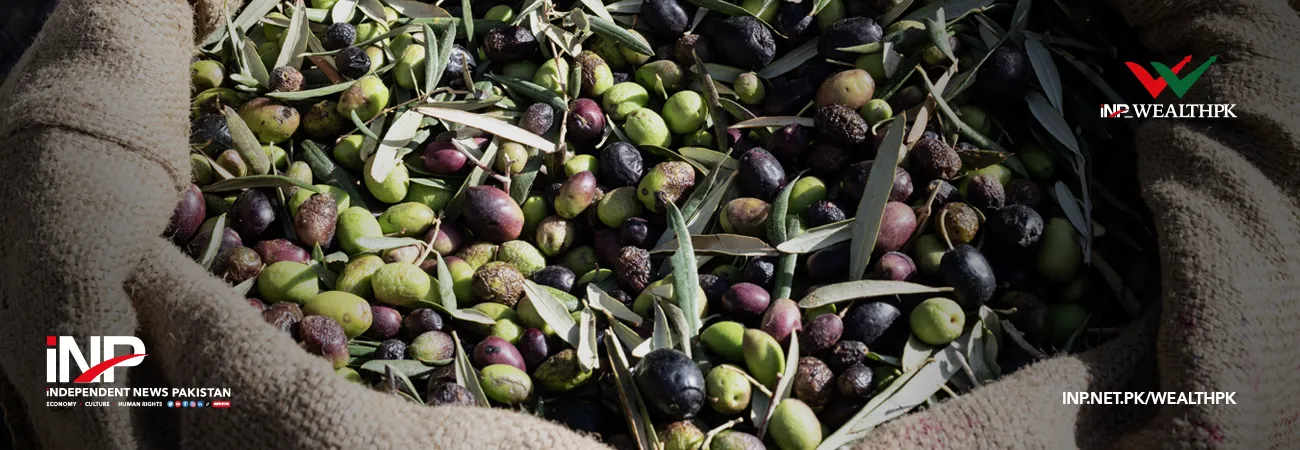INP-WealthPk
 By Faiza Tehseen
ISLAMABAD, Feb 01 (INP-WealthPK): The agricultural sector in Pakistan could not develop according to its true potential due to lack of proper attention, and now it is in dire need of revolutionary reforms.
Being an agrarian country, Pakistan must consider adopting Chinese model of agricultural reforms. China is more than successful in its anti-poverty war. China was among the first to reach the UN Millennium Development Goals (MDGs). China has met 10 years in advance the poverty eradication target set out in the 2030 Agenda for Sustainable Development. Such achievement of China marked a milestone not only in its own history, but in the history of humankind as well.
China has taken multiple steps to alleviate poverty. Examples of such steps are strict monitoring, enforcement to act upon the poverty alleviation measures, continuous reforms, development of rural infrastructure in remote areas, self-development by capacity building, education, living standard betterments and public services expansion. Women, children, people with disabilities and elderly persons were especially focused on.
Regular motivation programs were launched not only for rural poor people, but to make the people of urban areas and industrialists support rural people along with cottage industries. Positive steps like creation of more job opportunities, industrial sector restructuring, agrarian reforms, agricultural infrastructure re-building, fulfilling of inadequate targeting mechanisms, prevention of inefficient source allocations, relocating poor people from inhospitable areas, compensation in economic losses associated with reduced ecological damage and allocation of subsistence allowances for deserved ones were well implemented.
Development of science and technology has brought a great change in agriculture and between 1990-2011 China has become able to feed nearly 20% of the world’s population with less than 10% of world arable land.
Relocation of poor people from uninhabitable areas suffering from harsh natural conditions and subject to frequent natural disasters also proved a success. As a result, more than 9.6 million people from inhospitable areas have shaken off poverty through relocation. The Chinese government has turned their places in forests, farmlands or other eco-friendly systems by providing them alternate places to live and work.
Poor people with the work ability have also been employed in eco-work e.g., forest rangers. Since 2013, at least 4.97 million hectares of farmlands in extremely poor areas have been turned to forests, at least 53 grass lands, wetlands, growing woody oil plants. By becoming forest rangers about 1.1 million poor people have established a team of 23,000 as a part of poverty alleviation afforestation. Forest Tourism restoration and protection of existing forests also oriented a platform for such people. This kind of settlement increased incomes of poor people and China got an improvised eco-environment. Poor people who have the ability to work are encouraged to find employment locally or elsewhere, or start their own businesses. In 2015, 12.27 million poor laborers found employment; the figure had risen to 32.43 million in 2020. Earnings from all poverty alleviation funds and assets had strictly been used to support the poor by turning them into shares. The income was proportionately allocated to poor villages to boost their business, incomes and other public services.
Pakistan can replicate or redesign the said Chinese model of agricultural reforms to make it more positive and productive but honest approach is important to implement along with policy making. According to World Bank’s data, during 2020-2021, Pakistan’s poverty rate was 39.3 percent. It can be improved by tactful socio-economic measures especially in agricultural sector.
The Government of Pakistan is taking many positive measures by providing subsidies and other incentives. But, the most important of all is a regular campaign to motivate all people to get rid of poverty and to become prosperous on socio-economic basis. It is a fact that China has got great success in poverty alleviation, but all the miracles are deeply based upon motivation.
By Faiza Tehseen
ISLAMABAD, Feb 01 (INP-WealthPK): The agricultural sector in Pakistan could not develop according to its true potential due to lack of proper attention, and now it is in dire need of revolutionary reforms.
Being an agrarian country, Pakistan must consider adopting Chinese model of agricultural reforms. China is more than successful in its anti-poverty war. China was among the first to reach the UN Millennium Development Goals (MDGs). China has met 10 years in advance the poverty eradication target set out in the 2030 Agenda for Sustainable Development. Such achievement of China marked a milestone not only in its own history, but in the history of humankind as well.
China has taken multiple steps to alleviate poverty. Examples of such steps are strict monitoring, enforcement to act upon the poverty alleviation measures, continuous reforms, development of rural infrastructure in remote areas, self-development by capacity building, education, living standard betterments and public services expansion. Women, children, people with disabilities and elderly persons were especially focused on.
Regular motivation programs were launched not only for rural poor people, but to make the people of urban areas and industrialists support rural people along with cottage industries. Positive steps like creation of more job opportunities, industrial sector restructuring, agrarian reforms, agricultural infrastructure re-building, fulfilling of inadequate targeting mechanisms, prevention of inefficient source allocations, relocating poor people from inhospitable areas, compensation in economic losses associated with reduced ecological damage and allocation of subsistence allowances for deserved ones were well implemented.
Development of science and technology has brought a great change in agriculture and between 1990-2011 China has become able to feed nearly 20% of the world’s population with less than 10% of world arable land.
Relocation of poor people from uninhabitable areas suffering from harsh natural conditions and subject to frequent natural disasters also proved a success. As a result, more than 9.6 million people from inhospitable areas have shaken off poverty through relocation. The Chinese government has turned their places in forests, farmlands or other eco-friendly systems by providing them alternate places to live and work.
Poor people with the work ability have also been employed in eco-work e.g., forest rangers. Since 2013, at least 4.97 million hectares of farmlands in extremely poor areas have been turned to forests, at least 53 grass lands, wetlands, growing woody oil plants. By becoming forest rangers about 1.1 million poor people have established a team of 23,000 as a part of poverty alleviation afforestation. Forest Tourism restoration and protection of existing forests also oriented a platform for such people. This kind of settlement increased incomes of poor people and China got an improvised eco-environment. Poor people who have the ability to work are encouraged to find employment locally or elsewhere, or start their own businesses. In 2015, 12.27 million poor laborers found employment; the figure had risen to 32.43 million in 2020. Earnings from all poverty alleviation funds and assets had strictly been used to support the poor by turning them into shares. The income was proportionately allocated to poor villages to boost their business, incomes and other public services.
Pakistan can replicate or redesign the said Chinese model of agricultural reforms to make it more positive and productive but honest approach is important to implement along with policy making. According to World Bank’s data, during 2020-2021, Pakistan’s poverty rate was 39.3 percent. It can be improved by tactful socio-economic measures especially in agricultural sector.
The Government of Pakistan is taking many positive measures by providing subsidies and other incentives. But, the most important of all is a regular campaign to motivate all people to get rid of poverty and to become prosperous on socio-economic basis. It is a fact that China has got great success in poverty alleviation, but all the miracles are deeply based upon motivation.













